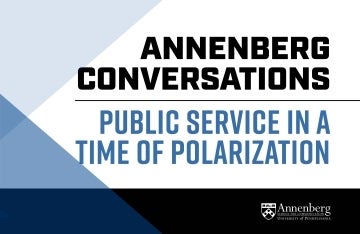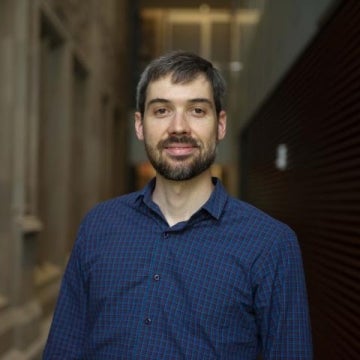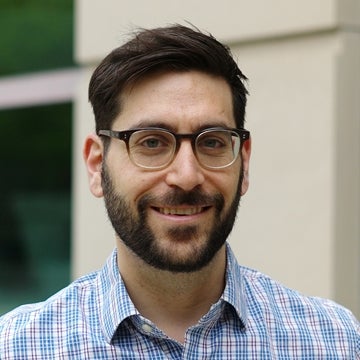
Annenberg Conversations: Andrew M. Guess and Yphtach Lelkes
- Hybrid Event (Room 500 and Zoom)
How much should we worry about fake, low-quality and biased news?
Register for the event via eventbrite
About the Speakers
Andrew M. Guess (Ph.D. Columbia University) is an assistant professor of politics and public affairs at Princeton University. His research and teaching interests lie at the intersection of political communication, public opinion, and political behavior.

Via a combination of experimental methods, large datasets, machine learning, and innovative measurement, he studies how people choose, process, spread, and respond to information about politics. Recent work investigates the extent to which online Americans' news habits are polarized (the popular "echo chambers" hypothesis), patterns in the consumption and spread of online misinformation, and the effectiveness of efforts to counteract misperceptions encountered on social media. Coverage of these findings has appeared in The New York Times, The New Yorker, Slate, The Chronicle of Higher Education, and other publications.
His research has been supported by grants from the Volkswagen Foundation, Russell Sage Foundation, and the American Press Institute and published in peer-reviewed journals such as the American Journal of Political Science, Journal of Politics, and Political Analysis.
Yphtach (Yph) Lelkes, is an Associate Professor at the Annenberg School for Communication. He studies public opinion, political psychology, and political communication.

His interests lie at the intersection of political communication, public opinion, and political psychology. In the broadest sense, he is interested in the antecedents, structure, and consequences of citizens’ political attitudes. He has focused on three, often overlapping, research questions: (1) What are the roots, structure, and consequences of affective polarization? (2) What is the impact of changes to the information environment on political attitudes? (3) What are the psychological underpinning and structure of political belief systems?
His work appears in top field journals in Communication (Journal of Communication, Journal of Computer Mediated Communication), Political Science (American Journal of Political Science, Journal of Politics), Psychology (Journal of Personality and Social Psychology), as well as general interest journals (PNAS, Nature Human Behavior).
He takes a problem- rather than methods-based approach to social science. As such, he regularly employs traditional methods (such as surveys, lab & field experiments, and quasi-experiments) as well as more computationally intensive methods (using, e.g., geographic data, huge administrative datasets, and automated text analysis).
He is the Co-Director of the Polarization Research Lab, which looks at affective polarization, social trust, and political violence. He is also the director of the Democracy and Information Group, where he explores these and related issues.
Before joining the University of Pennsylvania, he was faculty at the Amsterdam School of Communication. He received his Ph.D. from Stanford University.
Lelkes is a faculty affiliate at the Institute for the Study of Citizens and Politics and a fellow at the Amsterdam School of Communication Research. He also holds a secondary appointment in the Penn Political Science department.
About the Series
What often gets discussed as the increasing polarization and partisanship of our political system is, arguably, part of a much larger set of concerns about intensified tensions and antagonisms throughout public life and culture, both in the United States and around the world. What does it mean to take such sociocultural and sociopolitical schisms seriously? Do they pose added challenges for those invested in productive civic engagement? And how might one be an effective member of the larger body politic in such a fractured environment?
Events
View AllDisclaimer: This event may be photographed and/or video recorded for archival, educational, and related promotional purposes. We also may share these video recordings through Annenberg's website or related platforms. Certain events may also be livestreamed. By attending or participating in this event, you are giving your consent to be photographed and/or video recorded and you are waiving any and all claims regarding the use of your image by the Annenberg School for Communication. The Annenberg School for Communication, at its discretion, may provide a copy of the photos/footage upon written request.
